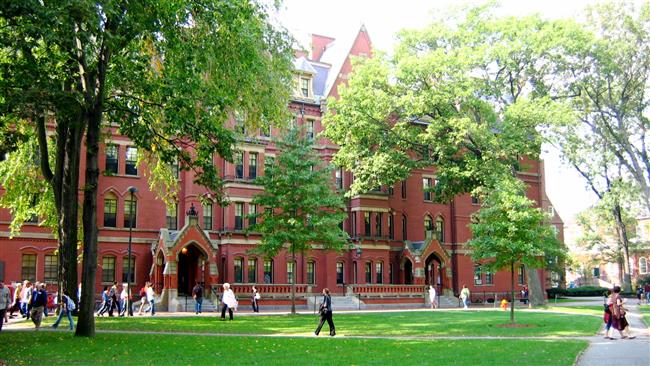Harvard University admits historical connections to slavery
Harvard University, one of the most prestigious colleges in the United States, has publicly acknowledged its connections with slavery in colonial America.
At a conference on the relationship between colleges and slavery on Friday, Harvard President Drew Faust said the school must confront its dark past before it can move forward.
"Harvard was directly complicit in slavery from the college's earliest days in the 17th century until the system of bondage ended in Massachusetts in 1783," Faust, a historian, said in her opening remarks, ABC News reported.
"We look at both past and present today in the firm belief that only by coming to terms with history can we free ourselves to create a more just world."
Scholars presented research on the topic and discussed how other American colleges benefited from slavery.
At least two of Harvard's early presidents forced slaves to live and work on campus. In addition, some of the contributions made to the school came from slave labor or the slave trade.
The university also invested in merchant voyages trading crops that were produced by slaves.
Harvard not only benefited from slavery, but it also promoted theories that justified the use of slaves. Louis Agassiz, a 19th century scientist at the university, developed such theories, historians said.
However, Harvard was not the only university exploiting human beings to its benefit.
"Some of our most esteemed educational institutions are also the product of some of the most horrific violence that has ever descended on any group of people," said Sven Beckert, a Harvard history professor.
Some colleges, including the University of Virginia, used slaves to build their campuses, while others were founded by wealthy merchants involved in the slave trade.
Iran's Armed Forces warn EU of ‘consequences’ of IRGC designation
Iran FM: EU’s blacklisting of IRGC a ‘major strategic mistake’
EU blacklists IRGC in legally flawed move irrespective of consequences
VIDEO | Press TV's news headlines
VIDEO | Afghanistan opens first specialized cancer hospital
Trump officials held secret talks with Canadian separatist group: Report
VIDEO | Pakistan’s legal community condemns UNHRC anti-Iran resolution
Resistance groups announce volunteer recruitment to defend Iran










 This makes it easy to access the Press TV website
This makes it easy to access the Press TV website